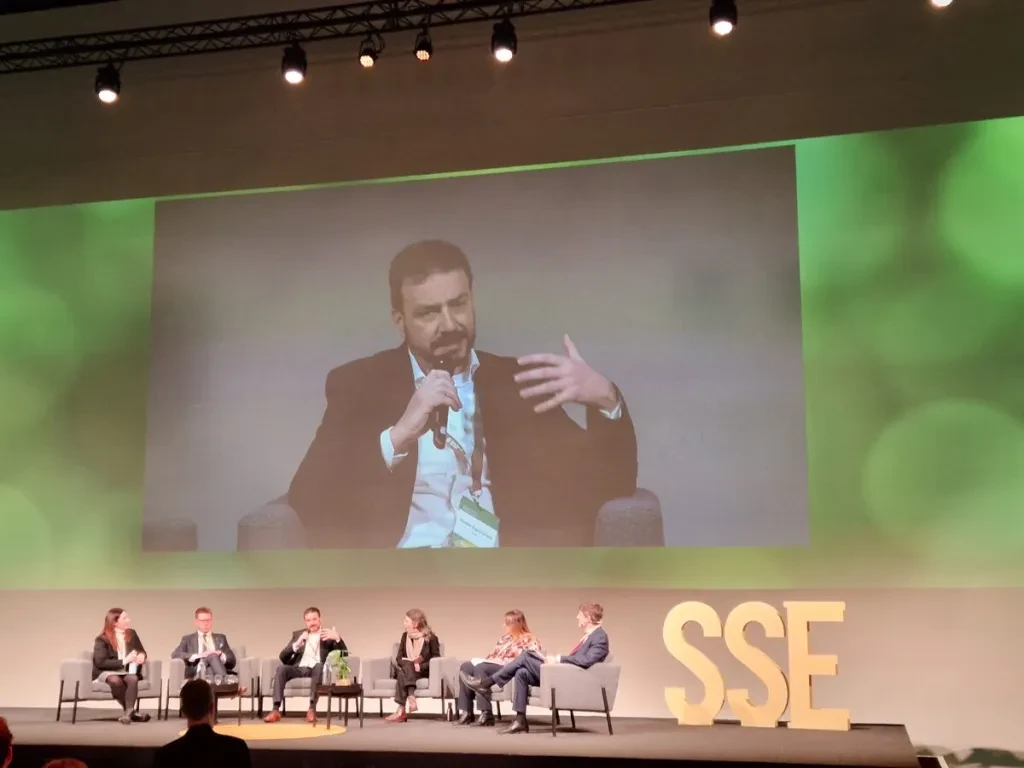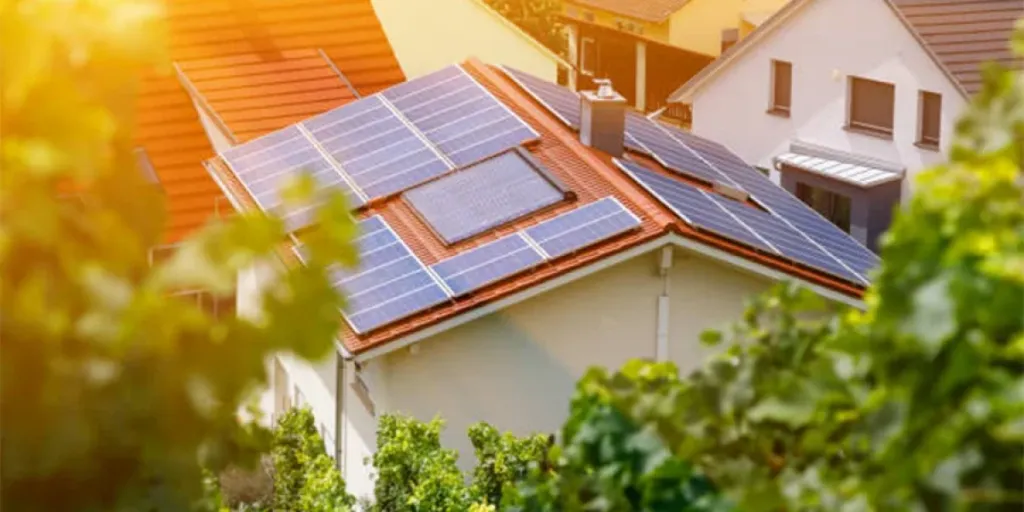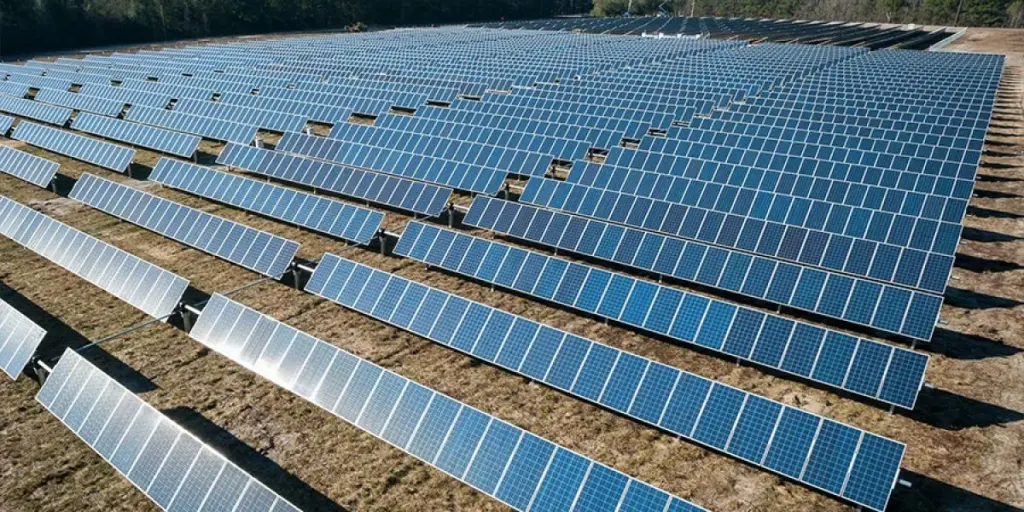Discussions at the Sustainable Solar Europe event, held yesterday in Brussels, reveal that clearly recorded and available information is the key to ensuring sustainable and ethical practices all along the solar supply chain. And clear standards for the accuracy and relevance of this information are needed to ensure that all are moving toward the same target. The day also saw the launch of such a standard in the Solar Stewardship Initiative’s Supply Chain Traceability Standard.

Image: pv magazine/Mark Hutchins
Sustainable Solar Europe, an annual event jointly hosted by industry association SolarPower Europe and event organizer SolarPromotion, went ahead yesterday in Brussels, and offered a full day of high-level discussions on the solar industry’s efforts to ensure its own sustainability, and the growing importance of Environmental, Social and Governance (ESG) factors in customer expectations, company reputation and financial risk management.
It was made clear from the start that interventions are needed on the policy side. “Carbon markets cannot solve this alone, and we need to ensure that national governments are not caught in a subsidy race,” Belgian MEP Sara Mathieu told the audience in the opening session.
The size and shape of those interventions were much discussed for the rest of the day. And key takeaways from those conversations amount to a clear for companies to both report their own materials sourcing, labor practices and other factors, and be open to third party audits on these as well.
Beyond providing ESG assurances, such information has valuable applications in quality assurance and determining responsibility in the event of warranty claims, and for recyclers as well, many of whom spoke of the challenge posed by modules whose exact contents are difficult to determine. Factors such as whether glass contains antimony, or which material was used as a dopant in cell manufacturing, can have a significant impact on recycling, and a ‘digital product pass’ detailing a module’s exact contents would go a long way to solving this.
However, many also spoke of the current tangle of different standards and practices ESG reporting entails. Differences between regions and regulating bodies leave many customers confused as to what is actually relevant or necessary, and create a risk of ‘audit fatigue’ among many suppliers.
Traceability standard
The Solar Stewardship Initiative (SSI) has set itself up as an antidote to this, and yesterday announced the publication of its Supply Chain Traceability Standard. Speaking at the launch, Head of the SSI Secratariat Alexia Ruvoletto said that the standard sets a benchmark for the entire solar industry to adhere to, to avoid audit fatigue and ensure collaboration as the whole supply chain moves toward the same target.
The standard was developed following consultation with more than 20 stakeholder organizations, and tested in audits of 14 sites covering the supply chain from polysilicon to modules. It aims to create an “unbroken chain of custody” to ensure that “certified materials remain distinct from non-certified ones, reinforcing the integrity of solar products,” according an announcement on the initiative’s website.
Recycling innovations
Also on show at Sustainable Solar Europe was a wealth of innovation in the PV module recycling space, with European and global initiatives exhibiting strong progress in automating and upscaling initial module dismantling processes, and extracting materials pure enough to go back into the solar supply chain. Making these processes more cost effective, and limiting use of toxic chemicals, are also stated targets for the initiatives.
Interest in module recycling this year was further underlined when Jan-Phillip Mai, of German Company Solar Materials, received the event’s sustainability award, for his plans to open a module recycling center in Magdeburg, Germany next year, and to scale to this up in 2026 to handle up to 36,000 tons of module waste per year. The winner was chosen by attendees from a shortlist selected by a jury.
This content is protected by copyright and may not be reused. If you want to cooperate with us and would like to reuse some of our content, please contact: editors@pv-magazine.com.
Source from pv magazine
Disclaimer: The information set forth above is provided by pv-magazine.com independently of Chovm.com. Chovm.com makes no representation and warranties as to the quality and reliability of the seller and products. Chovm.com expressly disclaims any liability for breaches pertaining to the copyright of content.





 Afrikaans
Afrikaans አማርኛ
አማርኛ العربية
العربية বাংলা
বাংলা Nederlands
Nederlands English
English Français
Français Deutsch
Deutsch हिन्दी
हिन्दी Bahasa Indonesia
Bahasa Indonesia Italiano
Italiano 日本語
日本語 한국어
한국어 Bahasa Melayu
Bahasa Melayu മലയാളം
മലയാളം پښتو
پښتو فارسی
فارسی Polski
Polski Português
Português Русский
Русский Español
Español Kiswahili
Kiswahili ไทย
ไทย Türkçe
Türkçe اردو
اردو Tiếng Việt
Tiếng Việt isiXhosa
isiXhosa Zulu
Zulu